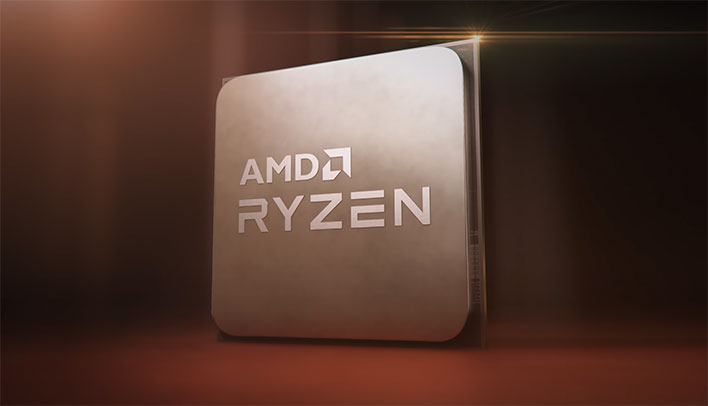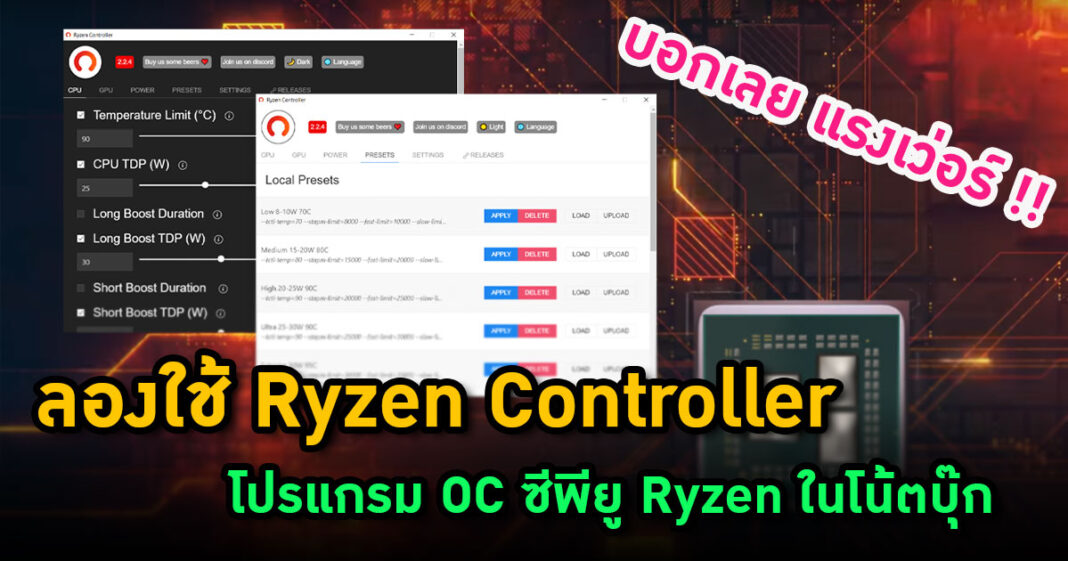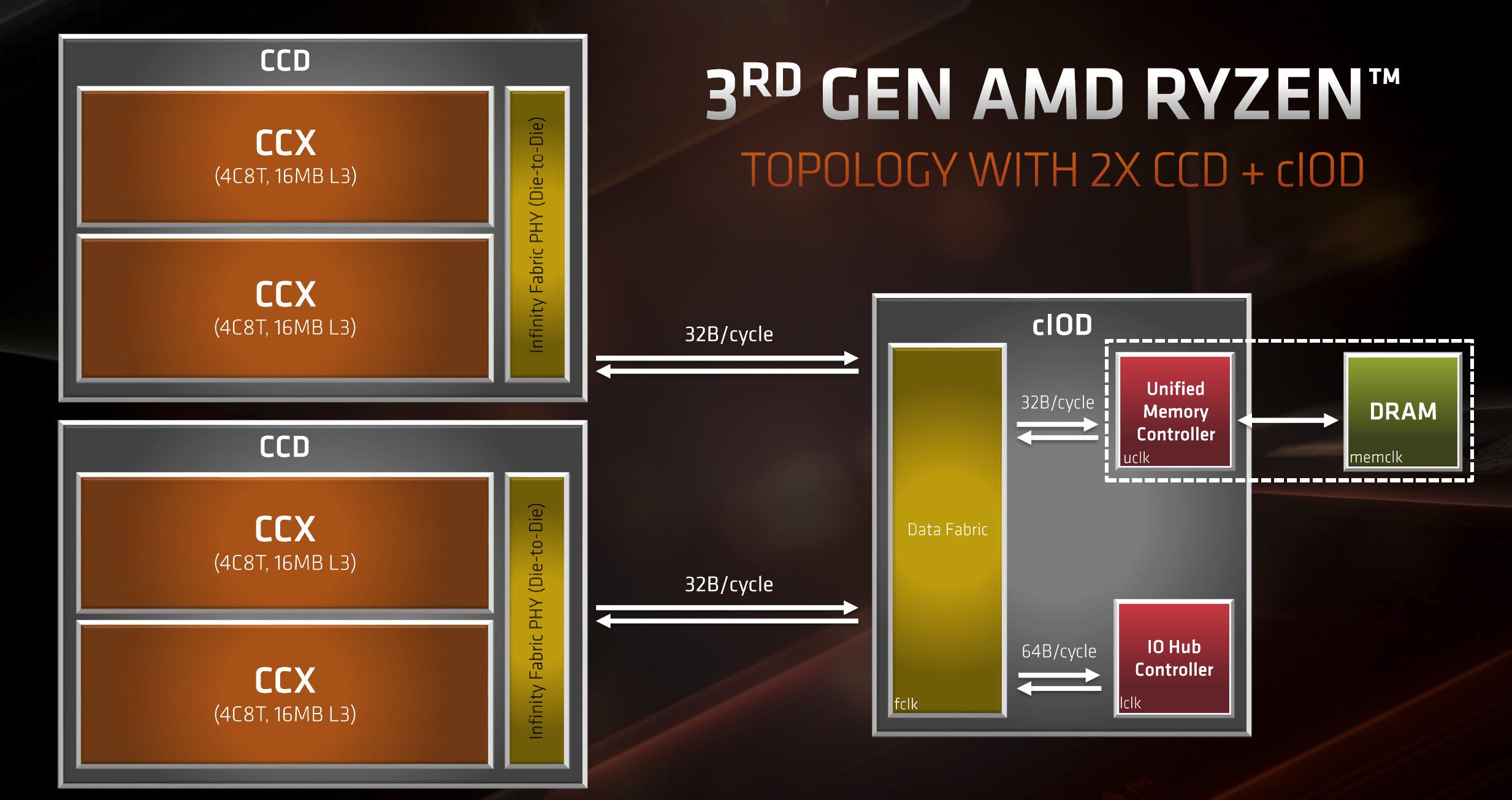

It supports tuning of various parameters related to timing, protocols, and buffers.

“iPerf3” is a tool for active measurements of the maximum achievable bandwidth on IP networks. It was used to analyze the microSD performances in writing sequential data. The evaluation of I/O-bound operations was done by means of “dd” and “iPerf3.” “dd” first appeared in Unix version 6 and it simply copies an input file to an output file. The benchmark tool used for evaluating CPU-bound operations, memory allocation, and transfer speed was called “sysbench.” “sysbench” is modular, cross-platform, multi-threaded, and allows for the evaluation of OS parameters that are important for a system running a database under intensive load. Only those services that were strictly needed were installed and enabled, both in host systems and guest systems, in order to avoid potential performance degradations.
#Ryzen controller 2.3.0 drivers#
In particular, we needed to cross-compile Linux-3.18.18, Xen-4.5.1, and Qemu-2.3.0.įor each virtualization solution, an ad-hoc kernel configuration was used in order to enable just the needed drivers for the SoC and drivers for the particular virtualization solution. Unfortunately, different packages needed for Xen and KVM were not available in the major GNU/Linux distributions, and so they had to be cross-compiled.
#Ryzen controller 2.3.0 software#
Please note that the GPU, SATA port, and USB 2.0 ports were not used for any of the benchmark tests described later.Īll three software configurations were based on Debian GNU/Linux armhf. An 8GB microSD Class 10 was used as a storage device for all of the described configurations. These hardware extensions are required both by Xen and KVM hypervisors. The ARM Cortex-A7 MPCore (and other processors of the ARMv7-A and ARMv8-A families) provides the ARM Hardware Virtualization Extensions. Storage: 4 GB NAND, microSD slot, SATA port The Cubieboard2 is a low-cost, low-energy, Allwinner A20 SoC. Mixxx has a cutting-edge mixing engine including support for MP3, M4A/AAC, OGG, and FLAC audio, adjustable EQ shelves, timecode vinyl control, recording, and Shoutcast broadcasting.We chose a CubieTech Cubieboard2 SoC for our experiments. Need a break? Create a quick playlist and let Auto DJ take over. Instantly sync the tempo of two songs for seamless beatmixing. With over 30 DJ MIDI controllers supported out-of-the-box, Mixxx gives you comprehensive hardware control for your DJ mixes. Crossfader curve control lets you deliver quick cuts or long, smooth crossfades.Īll your playlists and songs from iTunes, automatically ready to go for your next live DJ performance. Mixxx features audiophile butterworth filters with adjustable EQ shelves.

Mixxx plays MP3, M4A/AAC, Ogg Vorbis, FLAC, WAVE, and AIFF formats. Our mature audio decoders deliver pristine sound with rock-solid stability. Ramping pitchbend ensures any tempo nudging is smoothly applied, just like with vinyl. Our playback engine is finely tuned for accurate, rapid fire hotcue triggering so you can mash and remix as hard as you want to without a hiccup. Our high-quality interpolator can also reproduce classic vinyl sounds like backspins.įound a sweet loop or need to extend your mix while you prep the next track? Instantly loop a 4, 8, or 16 beat segment with the click of a button.įour hotcue points can be dropped or triggered with ease. Speed up and slow down songs without changing their pitch with time stretching. Each deck features a scratchable, scrolling waveform that marks beats and cue points, along with a whole-song waveform overview for quick seeking. Drop a song onto a deck in Mixxx to kick off your next mix.


 0 kommentar(er)
0 kommentar(er)
